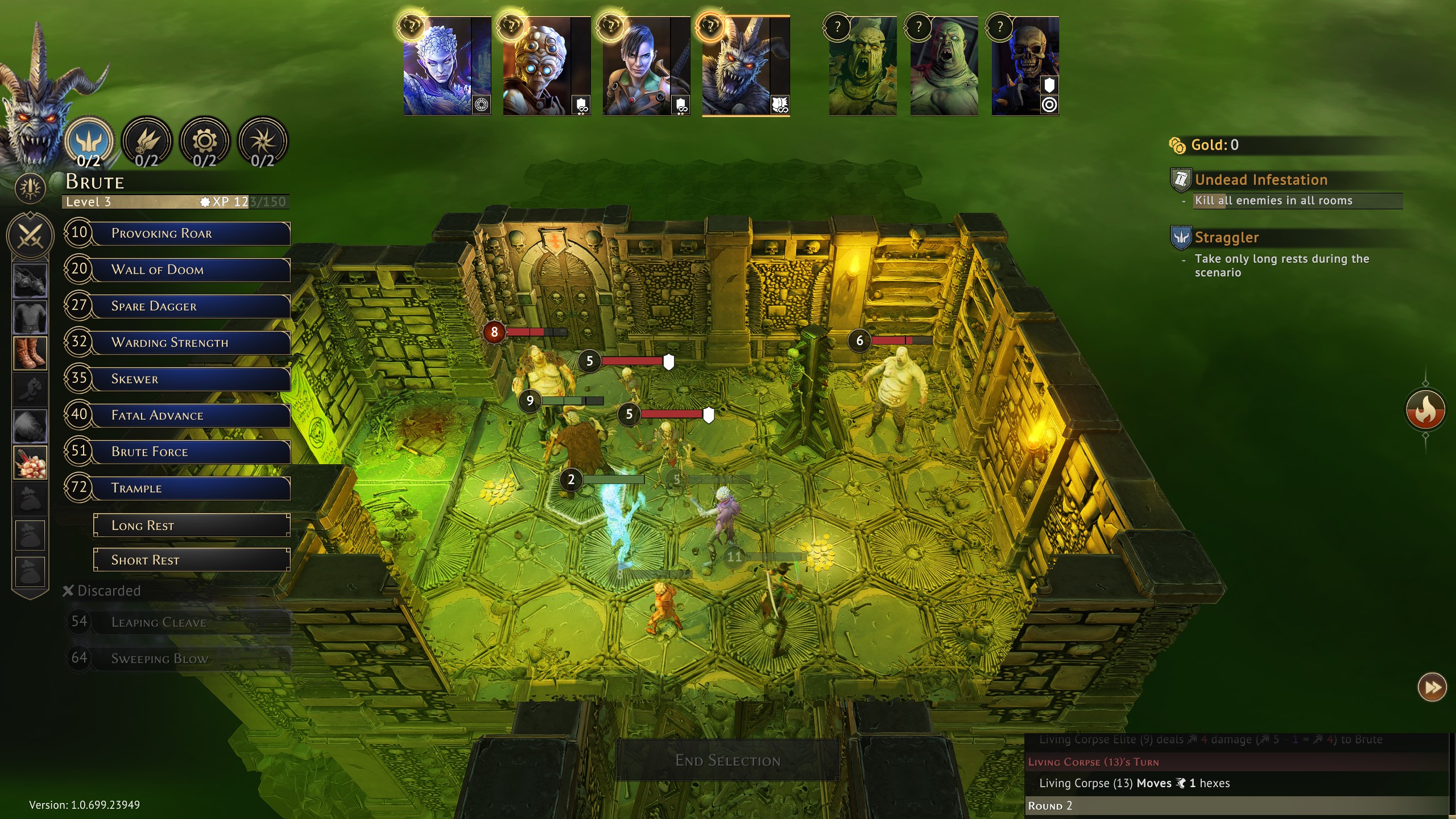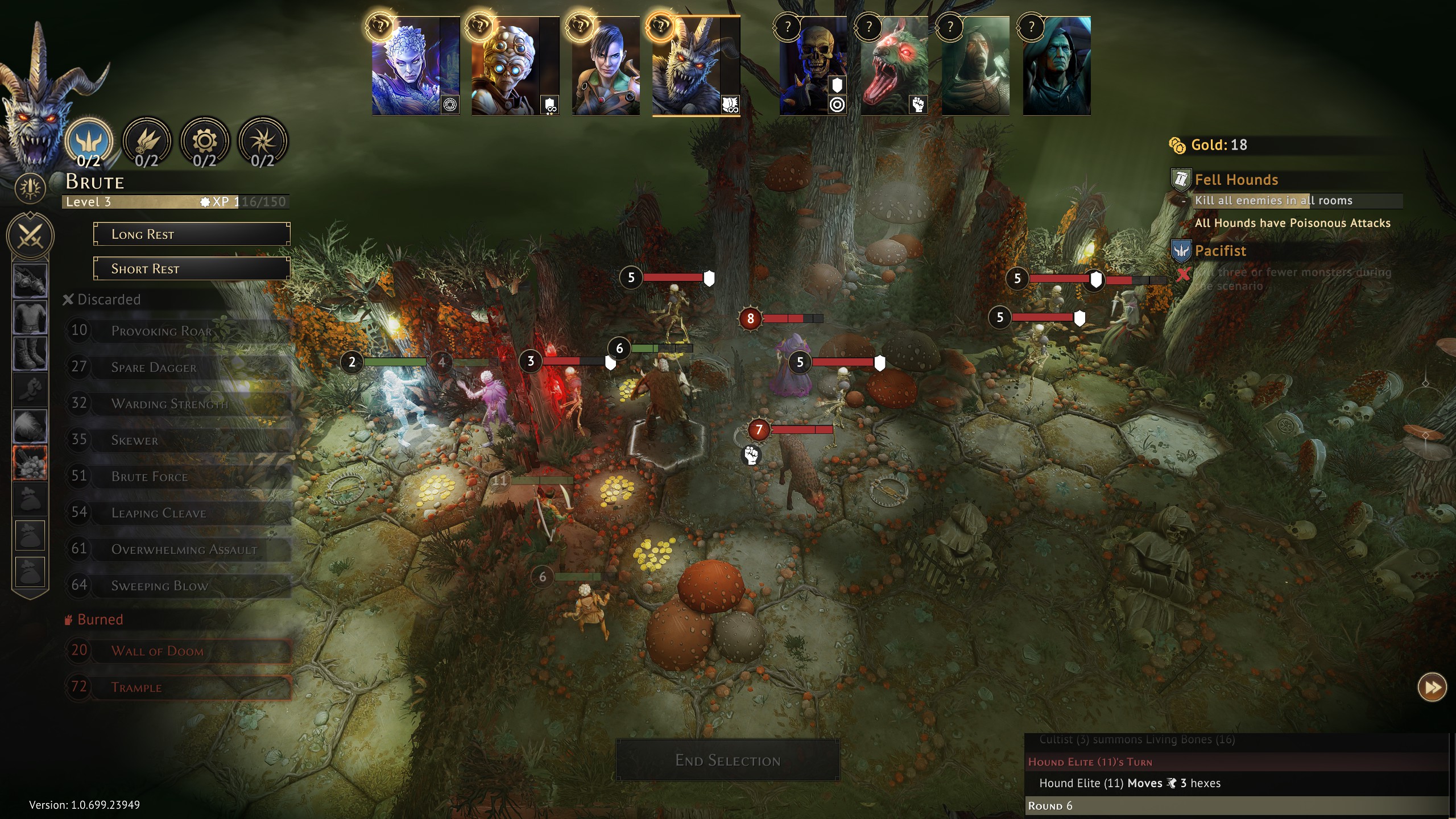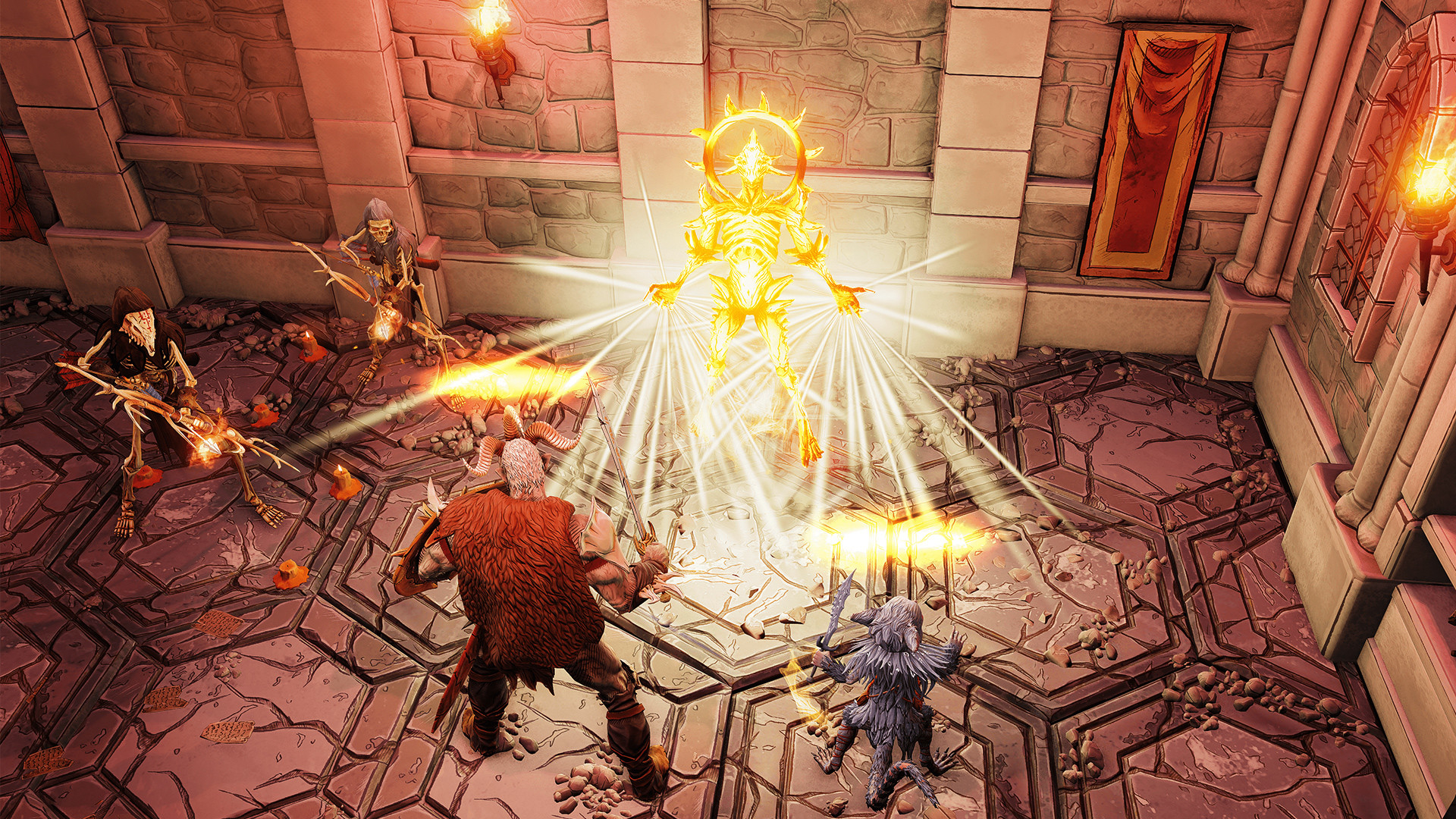Our Verdict
It's still one of the best dungeon crawlers ever made, but now it's on PC.
PC Gamer's got your back
What is it? A turn-based dungeon crawler.
Expect to pay £27.79/$35
Developer Flaming Fowl
Publisher Asmodee Digital
Release Out now
Reviewed on AMD FX-8350, Nvidia GeForce GTX 1070 Ti, 32GB RAM
Multiplayer? 4 player co-op
Link Official site
Gloomhaven is surely the most widely-praised hobby board game of the past decade. The digital edition replicates the sprawling Gloomhaven campaign in its entirety, adds an entirely new second mode, Guildmaster, along with online multiplayer: An adaptation of the tabletop experience that leaves nothing behind. While it's impossible to replicate the magic of sitting around a table, designing it to work on a screen provides things a boxed board game never would. Nonetheless, occasionally poor performance, the lack of a few quality of life features, and a liberal sprinkling of bugs hold Gloomhaven back.
It's a dungeon crawler at heart, where stories of fantasy and adventure read by a gravelly Scottish narrator sit alongside tactical missions that take adventurers through a series of rooms and monsters to accomplish fairly simple objectives. Everything in between quests is a 'choose your own adventure', where decisions are made and give static bonuses or penalties to either the campaign as a whole or the next adventure. The writing isn't its strong suit—this isn't Baldur's Gate by any stretch—but the voiced narration adds some meat to the bones of these stories. The simple campaign mode is engaging enough to keep you coming back night after night as you chart a fantasy epic, building up the town of Gloomhaven and watching your adventurers level up, retire, and get replaced by fresh blood.

Guildmaster mode is new to Gloomhaven, and something that should tempt even a tabletop veteran, as is the built-in level designer and modding support. While it's perfectly fun to play with friends, Guildmaster is in truth a purpose-built way to experience all of Gloomhaven by yourself. It's not voiced, and the story is a lot looser, but it has its own upsides: Your characters never retire, so you can tinker with them to your heart's content, and the scenarios are randomized, letting you do similar crawls multiple times without literally replaying the same setups. Both modes can be played by yourself controlling one to four adventurers, or with up to three others controlling one each.
Dungeons are card-driven tactical battles, some of the best you can find, that use a flexible system where you choose two cards per adventurer each turn, then execute the action from the top half of one card and the bottom of the other. Monsters attacks play out simply, no complex AI here, but each round is planned in advance so you don't know what the monsters are going to do until you've locked in your options. Each card also has a numerical value, its initiative, which is when you act in the round. Weirdly, the AI often takes quite a while to determine its action after you move—odd, given that it's entirely deterministic behavior.
So for a given round, your Tinkerer might pick their Stun Shot for initiative 20, which is a long-range stun attack on top and a four space move on the bottom, and their flamethrower, an area of effect burn weapon on top and a shield aura on the bottom. That combo of two cards can come out to two very different turns: A rush forward to roast some enemies, or a stunning shot to a tough enemy and a defensive buff to nearby allies. As you use cards they're either discarded or burned. Burned cards leave the game for the rest of your adventure, while discarded cards are eventually returned to your hand—at the cost of burning a discarded card forever. Run out of cards or health and you're taken out of the fight for the rest of the mission.

These fairly simple rules make fights into a slew of tough tactical choices and tight time limits. Missions are hard, and even the easy difficulty can and will beat tactics veterans into a pulp. A single misplayed card can set you on the path to doom in some scenarios: burning a powerful ability early might feel good, but what if that's the power you needed to grab the loot or knock out the last few enemies fast enough? It's some of the best tactical play in gaming, and some of the most delightfully difficult choices you'll ever make in a dungeon crawler. If that doesn't sound like enough, there are 17 playable classes with their own unique mechanics and decks of cards.
Bafflingly, Gloomhaven doesn't have an undo button. What should be easy-to-fix mistakes like moving one hex off, selecting the wrong ability, or misclicking to pass on an ability are impossible to take back. Misunderstanding the rules can be extremely frustrating, and there's no comprehensive rulebook in the menus. It's absolutely bizarre that I had to consult the tabletop rulebook to be sure I understood mechanics: When is my character's combat deck shuffled? What does that little flippy arrow mean? None of this is clear.
Nonetheless, the campaign is a blast with friends and far faster than a boxed game. Four hours at the table will get you a single dungeon, with its encounters before and after, played. Four hours in the digital campaign will let quick players plow through as many as three dungeons. If you feast on this kind of tactical play like I do, and if you're very happy to let the computer handle the little details, then Gloomhaven's ruggedly narrated adventures are exactly what you want from the genre. It's the thing all good tabletop adaptations should have: A reason why I'd play this rather than sit around a table.
It's still one of the best dungeon crawlers ever made, but now it's on PC.
Jon Bolding is a games writer and critic with an extensive background in strategy games. When he's not on his PC, he can be found playing every tabletop game under the sun.

